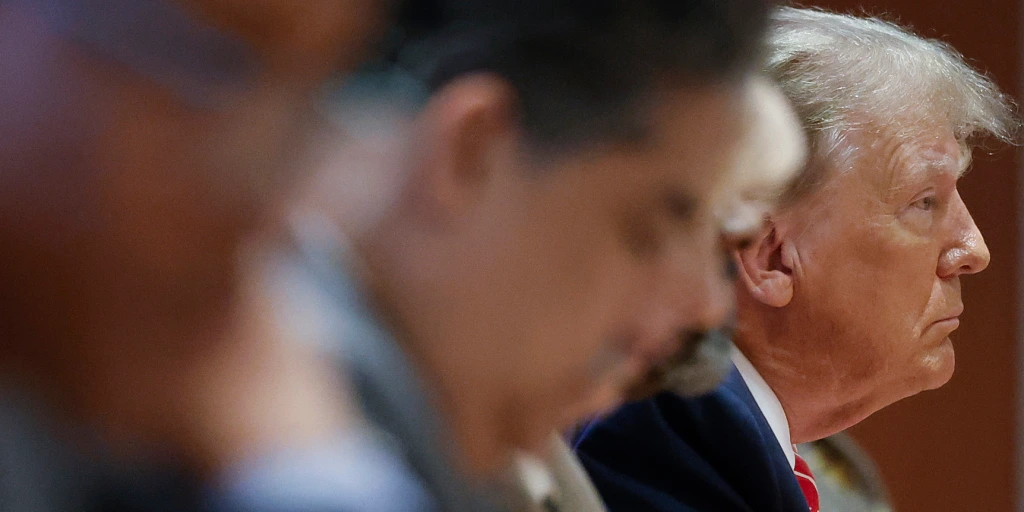For years, a U.S.-U.K. trade deal has been touted as a major post-Brexit victory, promising economic growth, stronger ties, and new opportunities for businesses on both sides of the Atlantic. However, beneath the optimistic rhetoric, there are significant reasons to believe that the deal may not deliver the benefits many expect. From political roadblocks to economic imbalances, here’s why the much-heralded agreement might fall short of expectations.
1. Political Hurdles and Shifting Priorities
One of the biggest obstacles to a comprehensive U.S.-U.K. trade deal is politics. The Biden administration has shown little urgency in pursuing new trade agreements, focusing instead on domestic policies like infrastructure and green energy. Unlike former President Trump, who was vocal about a swift deal with the U.K., President Biden has been cautious, prioritizing relationships with the EU and Asia over a bilateral agreement with Britain.
Additionally, U.S. lawmakers have expressed concerns over issues like the Northern Ireland Protocol and potential threats to the Good Friday Agreement. Until these sensitivities are resolved, Washington may remain reluctant to fast-track negotiations.
2. The U.K.’s Weak Bargaining Position
Post-Brexit, the U.K. has been eager to prove its global trading potential, but its leverage in negotiations with the U.S. is limited. The U.S. economy is nearly eight times larger than Britain’s, giving American negotiators the upper hand in demanding favorable terms.
Past discussions have revealed contentious areas where the U.S. is likely to push hard, including:
-
Agriculture: The U.S. wants greater access for its chlorinated chicken and hormone-treated beef, which face strong opposition from U.K. farmers and consumers.
-
Pharmaceuticals: American drug companies may demand higher prices for medications in the NHS, a politically toxic issue in Britain.
-
Financial Services: The City of London hopes for better access to U.S. markets, but American regulators are unlikely to make major concessions.
Given this imbalance, the U.K. may have to accept terms that benefit the U.S. more than itself.
3. Limited Economic Gains
Proponents of the deal argue that it will boost GDP and create jobs, but studies suggest the impact may be modest. The U.K. government’s own estimates predict a long-term GDP increase of just 0.16% from a U.S. trade deal—far from transformative.
Moreover, the U.S. and U.K. already trade extensively without a formal agreement. Tariffs between the two nations are already low, meaning the deal’s primary focus would be on regulatory alignment and non-tariff barriers—complex issues that take years to resolve.
4. Potential Threats to British Industries
While some sectors may benefit, others could suffer. U.S. agricultural exports, produced at lower costs due to economies of scale, could undercut British farmers. Small and medium-sized enterprises (SMEs) may struggle to meet stringent U.S. regulatory standards, limiting their ability to compete.
There are also fears that a deal could weaken Britain’s food safety and environmental standards. If the U.K. agrees to import U.S. products like chlorinated chicken or genetically modified crops, it could face backlash from consumers and activists.
5. The Shadow of Brexit and Trade Diversion
The U.K.’s departure from the EU has already disrupted trade with its largest market. While a U.S. deal might offset some losses, it’s unlikely to compensate fully. The EU accounts for 43% of U.K. exports, compared to just 19% for the U.S. Shifting focus to America could divert trade without providing equivalent benefits.
Additionally, the U.K. risks alienating the EU if it aligns too closely with U.S. regulations, potentially complicating future negotiations with Brussels.
6. Public Opposition and Political Risks
Trade deals often face public resistance, and this one is no exception. British voters are wary of compromising food standards, NHS protections, and environmental regulations for the sake of an agreement. Any perception that the government is selling out to American interests could trigger a backlash.
In the U.S., labor unions and certain industries may also oppose the deal if they believe it threatens American jobs. Given the political sensitivity on both sides, negotiators may settle for a shallow agreement that avoids major controversies but delivers limited benefits.
Conclusion: A Deal More Symbolic Than Substantial?
While a U.S.-U.K. trade deal has symbolic value in reinforcing the “special relationship,” its practical benefits are questionable. Political obstacles, economic asymmetries, and modest projected gains suggest that the agreement may not be the game-changer some hope for.
Instead of banking on a single deal, the U.K. may need a more diversified trade strategy—strengthening ties with emerging markets and repairing relations with the EU. As for the U.S., unless domestic priorities shift, the Biden administration is unlikely to push for a deal that offers more political risks than rewards.



